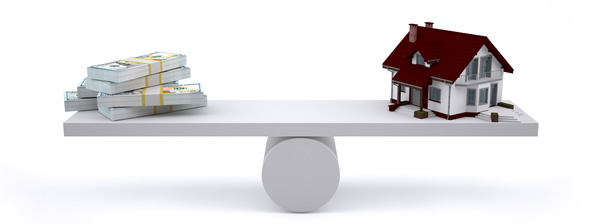
When the only thing standing between you and that house you’ve fallen in love with is a “yes” or “no” from a lender, it’s devastating when your application for a loan is rejected.
There are various reasons for loan rejections and some can be remedied quickly while others may take longer. Let’s take a look at some of the most common reasons a lender may reject a loan application.
- Debt
The primary reason for a mortgage denial is debt; it can even negate the fact that you have better-than-average income.
Lenders look at what they call your debt-to-income ratios (DTI) when determining what kind of risk you represent. They will calculate two ratios, the “front-end” and the “back-end.” The former is based on your gross income and your new mortgage payment and lenders typically look for a front-end ratio of 28 percent or less of your gross monthly income.
The back-end ratio takes into account all of your monthly debt payments and your income. A back-end ratio of 43 percent is typically acceptable, but not always. Ellie Mae, for instance, says that the aveerage ratio is 34 percent and FHA’s average is 41 percent.
If yours is 47 percent, kiss your chances for a loan goodbye, according to Kenneth R. Harney, writing in the Los Angeles Times.
This is one of those situations that can be remedied, over time. Bring down your debt or raise your income.
- Insufficient income
Low-income borrowers typically don’t qualify for conventional loans and insufficient income is a common reason for mortgage application rejections. But, that doesn’t mean you can’t get a loan elsewhere.
The United States Department of Agriculture (USDA) offers loans to low-income Americans and these products don’t require a down payment. Some banks also offer loans for those with lower-than-average incomes as do federal and state agencies.
- Credit woes
Many homebuyers think they won’t be on the receiving end of a mortgage application rejection because they have a good credit score. This is not necessarily true. Sure, it’s an important aspect of the lending process, but a high score doesn’t negate other problems on the application.
FICO scores range from 300 to 850, with the average score for closed loans around 740. If your score is lower you may have problems finding a loan with a decent interest rate.
Yes, there are other reasons your loan may fail, but these are the three most common. Thankfully, they can all be remedied over time
